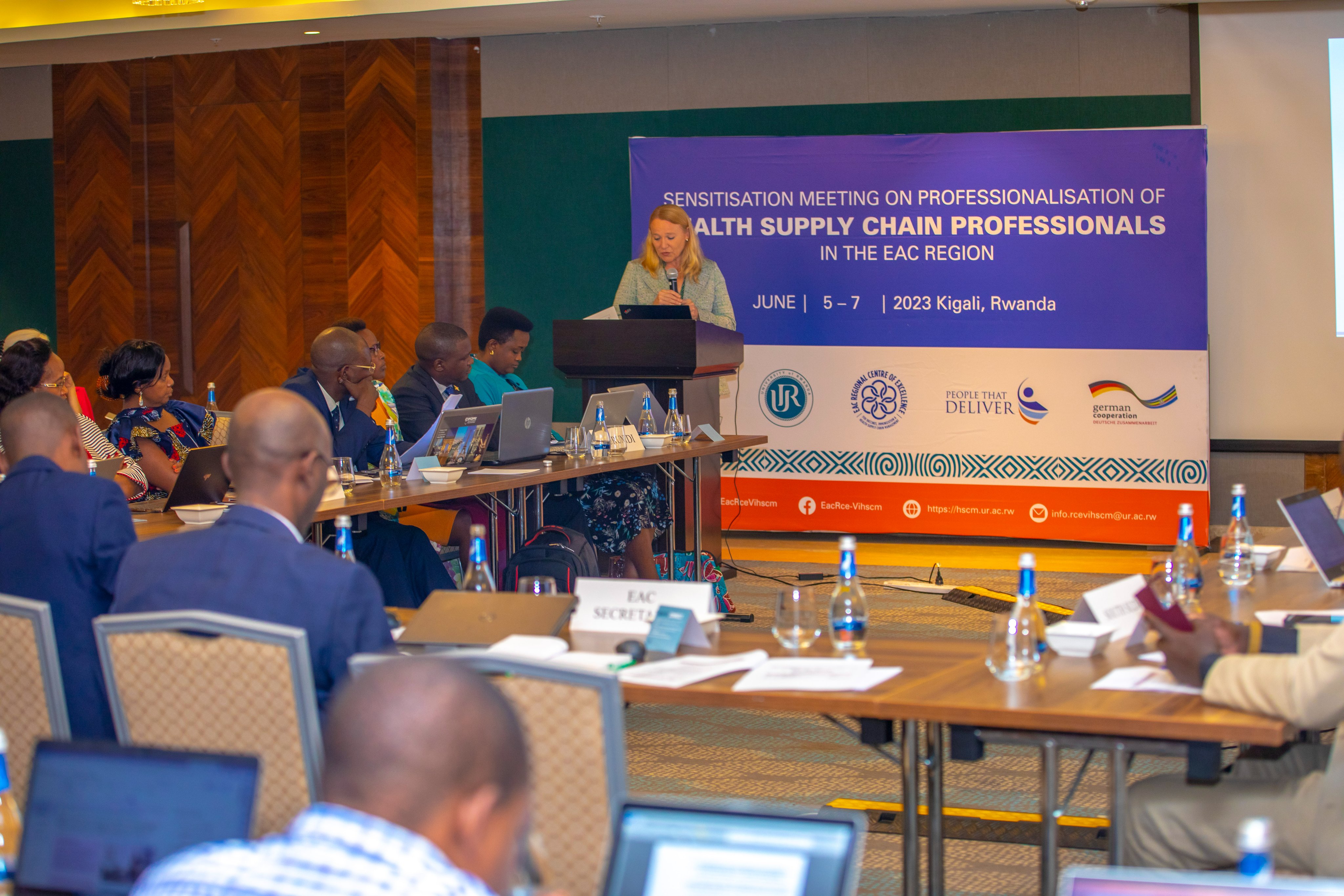Ministry of health representatives from Burundi, Kenya, Rwanda, South Sudan, Uganda and the United Republic of Tanzania met today in Kigali to discuss how to professionalise their health supply chain management.
The Sensitisation meeting on professionalisation of health supply chain professionals in the EAC region was organised by the East African Community Regional Centre of Excellence for Vaccines, Immunization and Health Supply Chain Management (EAC RCE–VIHSCM) with the support of People that Deliver (PtD).
The Chartered Institute of Procurement & Supply, Africa Resource Center for Excellence in Supply Chain Management in Nigeria, the USAID Global Health Supply Chain Program-Procurement and Supply Management project in Rwanda, HELP Logistics and VillageReach are also participating in the three-day meeting.
According to Dominique Zwinkels, PtD executive manager, for the countries in attendance the meeting could signal the beginning of a fruitful journey: “All these countries are here because they see professionalisation of the supply chain workforce – and the PtD Professionalisation framework – as fundamental to strengthening their health supply chains and improving the availability of health supplies.”
The EAC RCE-VIHSCM Director, Stephen Karengera said, “We’re pleased to bring EAC partner states together to talk about how to professionalise the health supply chain. For the EAC community, investing in this sector is a top priority if we are to reach the SDG targets by 2030 and ultimately, universal health coverage.”
Professionalisation, which has been identified as the best way to develop skilled and motivated supply chain professionals, is a process that increases the supply of skilled personnel in the health supply chain to satisfy current and future market demands. At this event, the guiding document central to the professionalisation of the supply chain workforce is PtD’s SCM professionalisation framework, which leads states as they professionalise their workforces, beginning with securing the commitment of stakeholders and ending with the implementation of the country’s strategy.
The meeting gives participants the opportunity to learn about best practices and the challenges of implementing a professionalisation agenda in the health supply chain. The participants will also develop country specific roadmaps that define the steps needed to attain a professionalised supply chain workforce that is skilled and motivated, deployed in the right number and enjoys conducive working conditions.
Today the participants began an advocacy exercise that focuses on identifying fit-for-purpose mechanisms to scale up health supply chain professionalisation in the EAC region. Phase two of the professionalisation approach centres on securing national stakeholder commitment.
A second meeting will be organised later in the year to enable health supply chain professionals to seek the support of PtD and EAC RCE–VIHSCM as they work towards the development and implementation of the professionalisation roadmap.
People that Deliver (PtD) is a coalition of diverse organisations, hosted by UNICEF Supply Division in Copenhagen, which works together to further the development of a competent, supported and adequately staffed supply chain workforce that is deployed across the public and private sectors within the health system. PtD is the global leader in human resources for supply chain management and its approach is rooted in the notion that without trained professionals to manage health supply chains health commodities do not reach the patients who need them.
The East African Community Regional Centre of Excellence for Vaccines, Immunization and Health Supply Chain Management (EAC RCE–VIHSCM) is one of the six EAC Regional Centres of Excellence for Skills and Tertiary Education in the Higher Medical and Health Sciences Education, Health Services and Research. The Centre was established to contribute to the improved health of the people of the East African Community by building supply chain management capacity for EAC personnel and to act as a regional focal point for the introduction and dissemination of innovative and proven procedures in health supply chain management.

